#fear and trembling
Explore tagged Tumblr posts
Quote
Faith is not an aesthetic emotion but something far higher, precisely because it has resignation as its presupposition; it is not an immediate instinct of the heart, but is the paradox of life and existence.
Søren Kierkegaard, Fear and Trembling
526 notes
·
View notes
Note
what be ye fav-o-rite song?
I have prepared my whole life for this question.
Twice, actually!! ive been asked about this before so I’ll tell you about my second favorite song ;3
Fear and Trembling by Gang of Youths!!!!!!
okay so this song is seven minutes long. and very complicated so I won’t go over all of it. but it just means so much to me. In ways, even more so than what I call my actual favorite song (What Can I Do If The Fire Goes Out- Same band) because of just how it made me realize why I liked gang of youths.
Its lyrics are somewhere on the scale of incredibly personal to unfounded. stories from the singer/songwriters life he has never told, singular experiences I shouldn’t be able to connect with. Yet I do. Dave Leau’pepe, the aforementioned singer, has a way with words and feelings like that. In the first section especially, where it’s very somber, tired, reminiscent of the sadder works in the album. and while I’m here the transition from said sadder section into full on heavy rock with the best drum fill ive ever heard
and most of all is a singular lyric in the chorus: “There’s shadows in my blood”
it’s at the highest point of the section, and precedes a brief pause before the whole track slams back downward with full throttle and it means so much and so little because godDAMN IT if there aren’t shadows in my blood. something about it is so integrally perfect for summarizing all the struggles I’ve ever had. it’s me. this lyric is me it was written by someone who evidently understands me in a way even I myself never will by accident. that right there is the fucking beauty of music summarized.
“I won’t go into all of it” *proceeds to write three paragraphs*
ough I love music. please ask again all of you, I will ramble about more songs there’s so many
28 notes
·
View notes
Text
—yet God is love and for me continues to be so, for in the temporal realm God and I cannot speak with one another, we do not share a common language.
Søren Kierkegaard, excerpt from Fear and Trembling trans. Bruce H. Kirmmse
14 notes
·
View notes
Text
I be like why tf Kierkegaard coming for Orpheus so hard ohhhhh bc Orpheus didn’t have faith and so looked back to see if Eurydice was following him … okay still why are cithara players catching strays sheesh
5 notes
·
View notes
Text
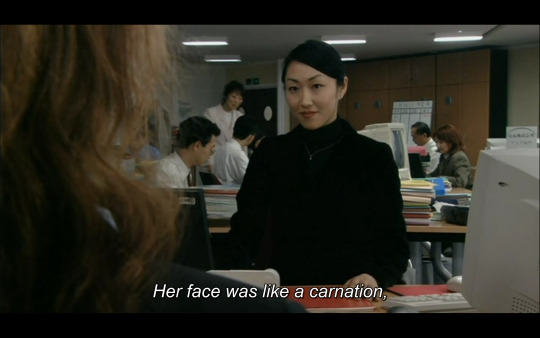
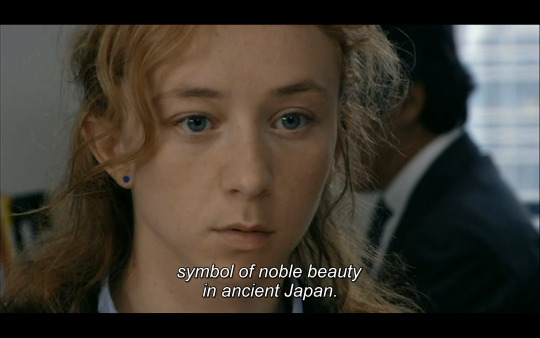
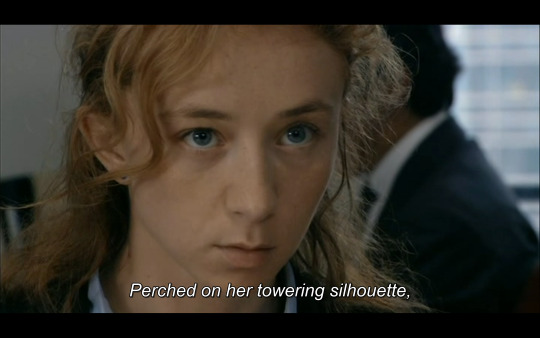
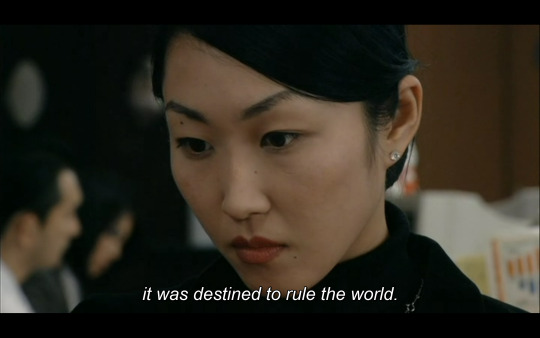
#misclb#orlbs#was thinking about this quote again#there were many moments in the movie that left us speechless#this was one of them#HELLO??????????#Stupeur et tremblements#fear and trembling#toxic office yuri hunt
43 notes
·
View notes
Text
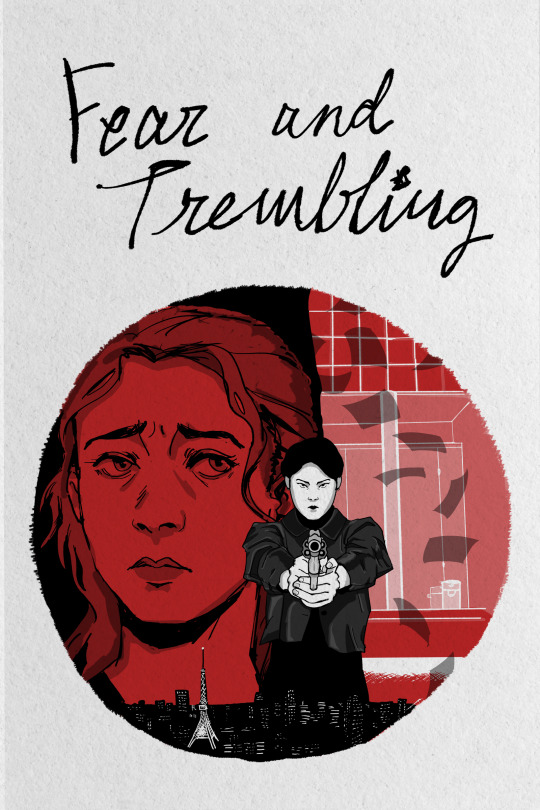
commissioned by @obstinaterixatrix, the ladies from deranged toxic office yuri film fear and trembling (2003) in the style of a merry christmas mr lawrence (1983) film poster. watch this movie if youre in the mood for deranged toxic workplace yuri
#fear and trembling#merry christmas mr lawrence#sylvie testud#kaori tsuji#yuri#femslash february#ITS STILL FEBRUARY I AM TAGGING IT THAT#myart#commission#thx for the commission stella 🫡
47 notes
·
View notes
Text
“…Abraham believed, and therefore he was young; for he who always hopes for the best becomes old, deceived by life, and he who is always prepared for the worst becomes old prematurely: but he who has faith, retains eternal youth.”
-Kierkegaard, Fear and Trembling
3 notes
·
View notes
Text
Man so nice of my father to take me out on this hike with our pet goat, I sure hope no sad religious guy in 2300 years writes a 70 page thesis on this : )
4 notes
·
View notes
Text
Three Witches, Three Knights
Soren Kierkegaard, one of the founders of existentialism, imagined three tiers of philosophical maturity: the "slave of aesthetics", the "knight of infinite resignation", and the "knight of faith". The characteristic way to tell them apart, which he discussed in his pseudonymous essay "Fear and Trembling", is to look at how they wrestle with an impossible ideal.
I'm not an existentialist myself, but, ever since going back and reading Alliance of the Golden Witch, I've been struck by how well this formulation applies to a discussion of the magic wielded by the witches of 1986's Rokkenjima, and the angles by which they tended to approach the impossible.
The vast majority of people, in Kierkegaard's view, were merely in the aesthetic realm, where, if one's ideals prove to be impossible, one recognizes the impossibility and responds by lowering one's standards. "My ideal can't be achieved in reality; therefore, I will give up on it, and instead live for an 'easier' ideal which I know I can reach." This is the kind of motivated thinking that makes people passive - that makes them, in Kierkegaard's view, live a life they will inevitably look back on and regret.
In Ushiromiya Eva, we see a prime example of the aesthete's ruin. When her ideals become impossible, she allows them to change to something more 'realistic'… and, because a person's life is long, change stacks on change until she is left with nothing to live for at all. As a child, she understood that Kinzo's sexist nonsense was wrong, and rebelled against it, with "the headship" as her impossible ideal, a benchmark of everything she was striving against. As an adult, she came to understand that Kinzo would never move on the topic… but, instead of throwing away Kinzo, she threw away the ideal that he was standing in the way of, in order to adopt a lower, more realistic ideal: her son as the head. Then her son died, and she adopted a lower ideal still: to at least raise Ange, the other survivor, as well as she could, and heal both their hearts. When Ange rejected her love year after year (egged on by the Tanabata Witch's lies), Eva was left believing in nothing.
An Eva who had continued to believe in breaking the sexist norms of the Ushiromiya family (the core of her ambition to "become the head") would've been able to emerge from 1986 - though wracked with grief - with her goal miraculously accomplished, and with something to live on for, too: proudly fighting that same battle in the boardrooms of all the companies the Ushiromiya Group conquered.
The Eva we know, in contrast, abandoned ideal after ideal, and died in 1998 with no ideals at all, a broken wretch of a woman.
How can we avoid this degradation of our ideals? Kierkegaard proposes the path of the the "knight of infinite resignation", who responds to the crisis by a different method. Instead of giving up on their impossible ideal, they accept its impossibility and in doing so turn that ideal into something quasi-religious. Perhaps it's impossible in this world but possible in the next. Perhaps it's an asymptote, but there's still virtue and value in striving to get as close as you can, as often as you can, for as long as you can. The impossibility of the ideal makes it something higher than the heavens, and thus, something you're all the more able to devote your life to, like a knight oathsworn to a holy order.
In this, one is not released from pain… but at least finds a kind of peace which balms the pain, and in the end should be able to look back on their life confident that they did what they could.
Beatrice is the Endless and Golden Witch.
As the Golden Witch, she understands that even with a mountain of gold, some miracles are beyond reach.
But as the Endless Witch, she is able to take her impossible longing, and resign herself to its impossibility in this world. Instead, she pushes that longing into the next world, into eschatology. In the Golden Land (the world erased by the Endless Magic), all those with minds are equal; therefore, by looking ahead to the Golden Land (creating endless bottle Fragments), she can resign from finding satisfaction in the Rokkenjima of humans.
(It was only Battler's return in 1986 which - by throwing her understanding of what was 'possible' or 'not possible' into disarray, and making her uncertain as to whether her ideal was really what she wanted - broke her resignation.)
But there's one step further than this. Kierkegaard imagines the "knight of faith", a level which he believes people have occasionally reached, despite it being something which should be "beyond humans". Imagine a knight of resignation, who has accepted everything the knight of resignation has accepted. "My ideal is impossible. It's worth striving for even if it's impossible, but that doesn't make it any less impossible." But then, she becomes a knight of faith by taking this one step further: "Even if that's true, the world is absurd. Impossible, insane things happen every day. And so why should I be resigned to failure? I will believe in this despite its impossibility. Despite its impossibility, if I strive for it, that's an opening for it to become true."
And Beato, too, recognized the existence of that step which was beyond her. She recognized it because she witnessed it in someone else: her apprentice.
Maria, you must understand, knew how magic worked, or else her diary would never have been able to instruct Ange so well. She wasn't delusional. She understood that Sakutarou's mind existed only by virtue of her active effort to manifest him (in other words: his mind existed only within her own).
But the world is absurd. The incidents of her life, even if she understood them, were senseless, her Mama's behavior especially. And therefore, whatever meaning she gave the truth still had value. She was able to look at the impossibility of her magic, say "even if that's true", and believe in it regardless.
She was able to create her own happiness within the misfortune, without ever deluding herself about the misfortune's existence.
In "Twilight of the Golden Witch", Ange is finally able to reach this level. Instead of knuckling under to despair upon learning the truth of 1986, she realizes the senseless absurdity of it all, and in that absurdity finds the audacity to make the impossible move that characterizes a Knight of Faith, which Maria had been trying to teach her all this time: believing her family resurrected, despite knowing and understanding that their deaths have been declared in red. Knowing her family's sins, and yet being willing to see them as their best selves.
And decades later along this road, Kotobuki Yukari discovers, impossibly, that hope does not disappoint.
#spoilers#umineko spoilers#umineko GIGAspoilers for allusions to what's behind the door in ep8#original content#maria ushiromiya#existentialism#soren kierkegaard#fear and trembling
9 notes
·
View notes
Quote
One not infrequently hears it said by men, who for lack of losing themselves in studies are absorbed in phrases, that a light shines upon the Christian world whereas a darkness broods over paganism. This utterance has always seemed strange to me, inasmuch as every profound thinker and every serious artist is even in our day rejuvenated by the eternal youth of the Greek race. Such an utterance may be explained by the consideration that people do not know what they ought to say but only that they must say something.
Søren Kierkegaard, Fear and Trembling
41 notes
·
View notes
Text
“Love, after all, has its priests in the poets.”
Søren Kierkegaard, Fear and Trembling
4 notes
·
View notes
Text
The more profound natures never forget themselves and never become other than what they were.
Søren Kierkegaard, excerpt from Fear and Trembling trans. Bruce H. Kirmmse
11 notes
·
View notes
Photo

Fear and Trembling by Søren Kierkegaard
The O.C.: "The Disconnect"
21 notes
·
View notes
Text
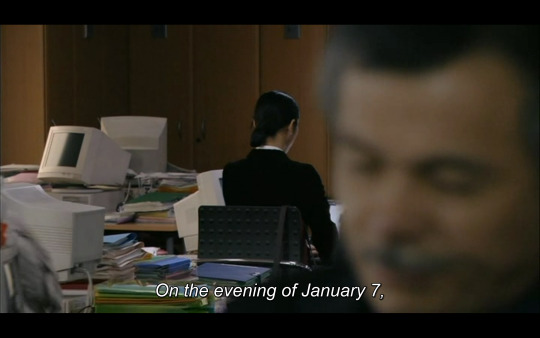

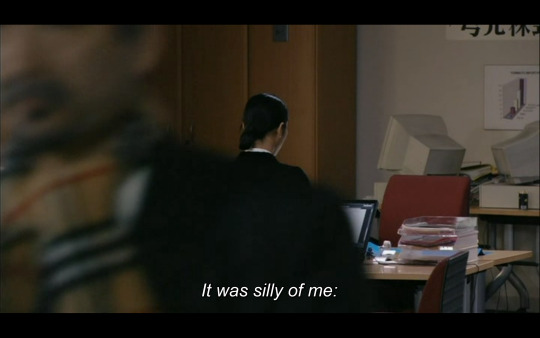
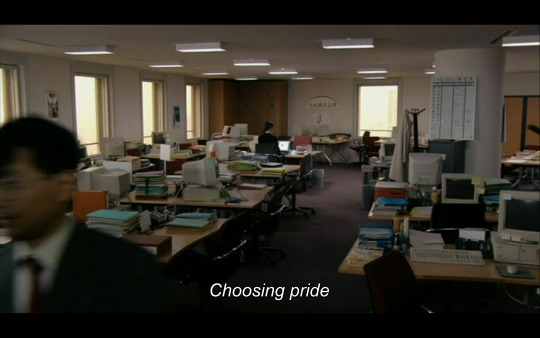

16 notes
·
View notes
Text
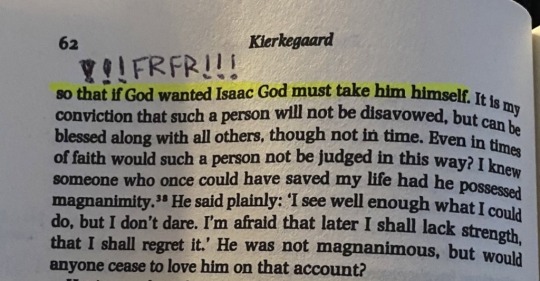
Hannibal coded in Mizumono
#going through my gallery#Hannibal#hannibal mizumono#hannibal nbc#fear and trembling#soren kierkegaard#Hannibal lecter
37 notes
·
View notes
Text
“No one shall be forgotten who was great in this world; but everyone was great in his own way, and everyone in proportion to the greatness of what he loved. For he who loved himself became great in himself, and he who loved others became great through his devotion, but he who loved God became greater than all.”
-Kierkegaard, Fear and Trembling
4 notes
·
View notes